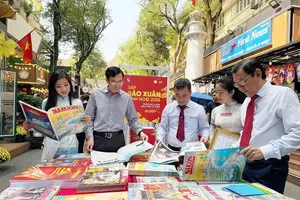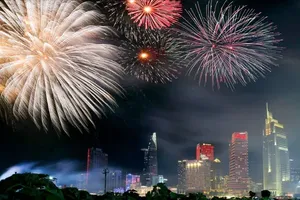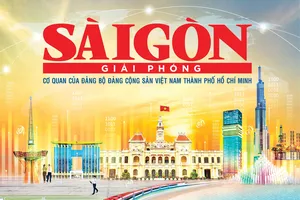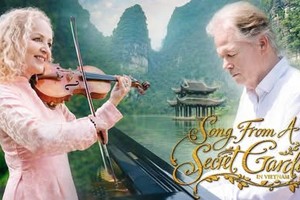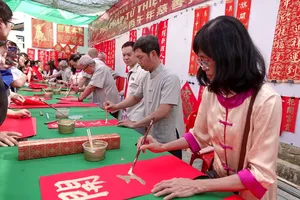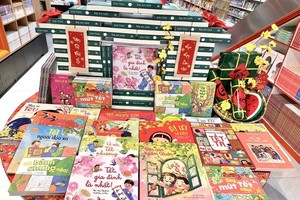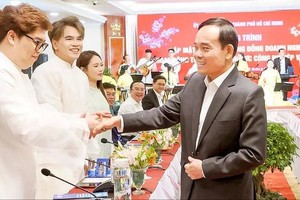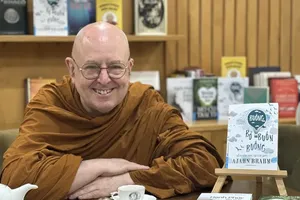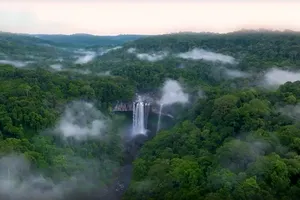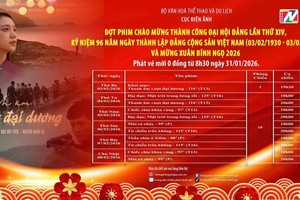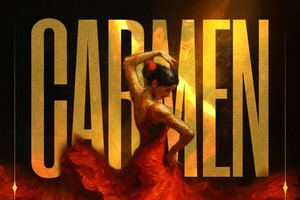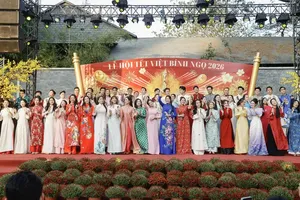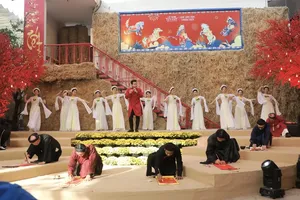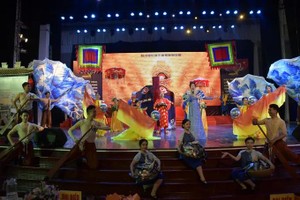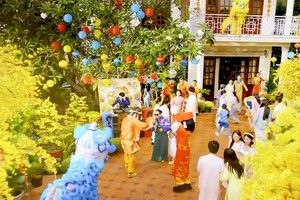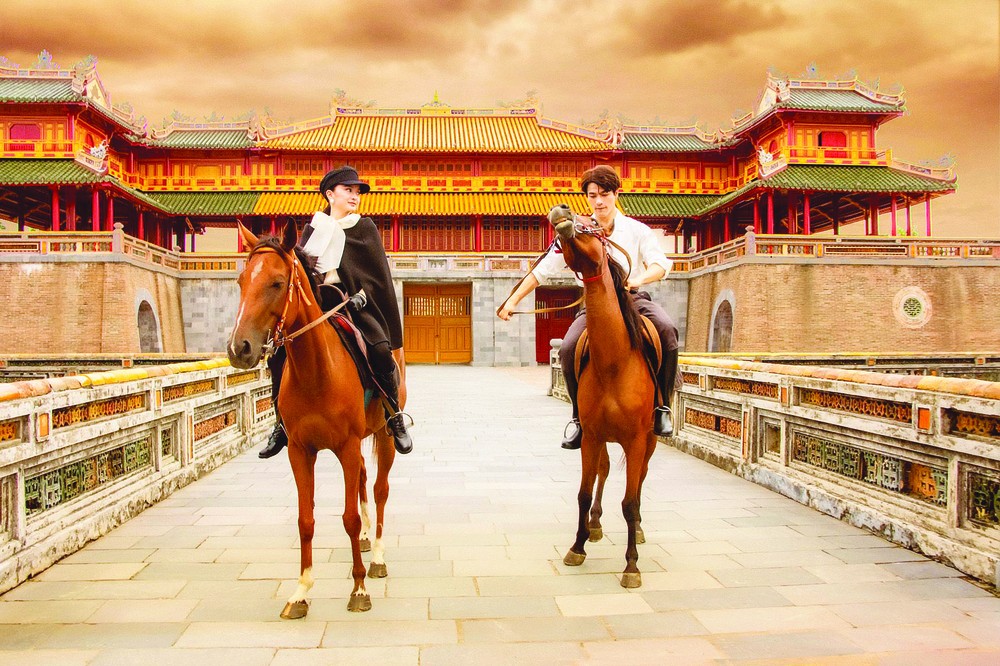
“I want to create truthful and human-centric representations of Vietnam in motion pictures”, said renowned producer Ngo Thanh Van in a media event on her most recent project.
One of her studio’s key principles is finding source materials that truly reflects and highlights the Vietnamese humans and culture, evident by many of their feature length films from the previous decade, including Song Lang (2018), Tam Cam: The Untold (2016), and Furie (2019).
“What else would the youth of our country be watching that can remind them of their roots, amongst this landslide of foreign media?”, Van bemoans.
Vietnamese cinema has been releasing new products at a rapid pace, sometimes over 40 movies a year, but most dare not break out of the monotony of commercialized scripts for mindless entertainment.
In recent years, there have been various feature films that explore little corners of the culture, albeit limited in number, such as Yellow Flowers on the Green Grass, Hello Vietnam (2017), or Dreamy Eyes.
Despite being few and far between, these movies have more or less proven filmmakers’ conscious effort to include traditional elements in their work in one way or another.
For example, the newly released Cau Vang or the upcoming Kieu are works that take inspirations from Vietnam’s 1800s-1900s literature.
Meanwhile, Vo sinh dai chien (Brawl of Martial Artists) shines a spotlight onto Vietnamese traditional combat practices.
Two full-length period dramas have also been announced for 2021’s Vietnamese cinema, giving moviegoers the rare chance to see Vietnamese historical settings in all their glory.
There are also filmmakers who choose to represent the culture through references and set pieces rather than making them a direct focal point. Director Namcito in his Lunar New Year release, The Last Egg 5, inserted elements from the Hung King era and Nguyen Dynasty into the dialogue and minor costume choices, on the backdrop of the Hue ancient capital.
“By bringing back old relics in a film set in the modern world, our cast and crew wish to celebrate the inherent values of our folkways while also introducing young people to the beauty of the history and traditions”, said Namcito's agent.
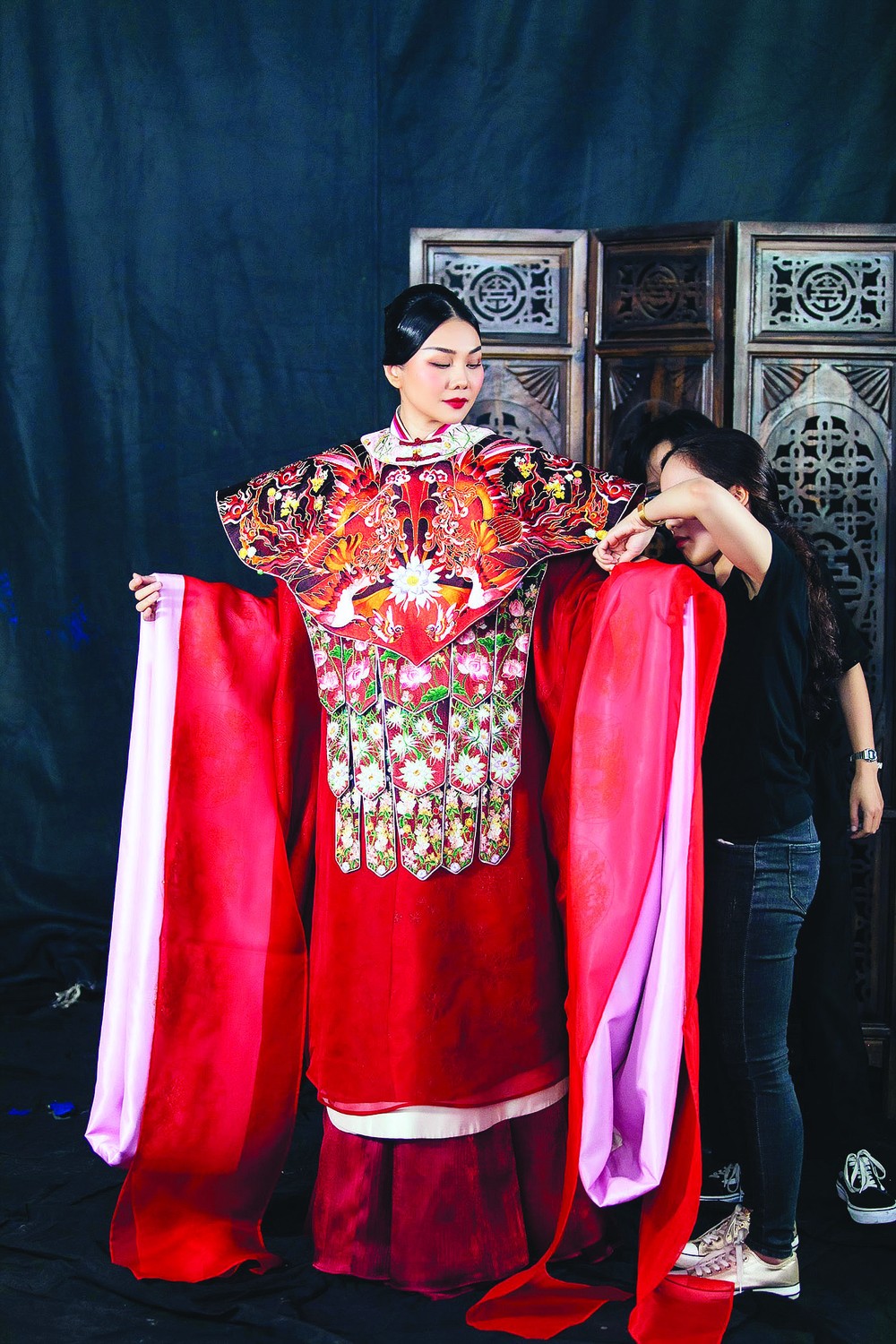
Throughout the years, Vietnamese directors have reflected the culture through a myriad of interpretations, like depicting the charm of a quaint rural village with its iconic ancient trees, the hazy smoke twirling around single brick houses, and laughing children on water buffaloes; or zooming in on the aesthetic of national garments like the ao dai, ao tu than (four-part dress) and old-time courtier outfits; or highlighting traditional performing arts that can only be seen during village ceremonies nowadays.
More ambitious filmmakers even aim to capture the national spirit of Vietnamese people through prideful, patriotic expressions.
Nonetheless, to portray the homeland on screen is always an uphill battle for domestic cinema in every aspect. For instance, budget has always been an issue for films that use bygone elements as the main selling point.
There is also the problem of being politically correct when recreating historical aspects, the most recent example of which was the debate surrounding the upcoming movie Kieu, which took inspiration from the epic poem written in 1820 by Nguyen Du. Netizens have questioned the crew's decision to use the modern Vietnamese alphabet in the film, which is not accurate to the time period.
Despite everything, filmmakers are optimistic and determined. Speaking to the press about her newest film on the Trung sisters, Truong Ngoc Anh said the crew had consulted many historians to “get right” any and all elements, from the physical and historical settings, to the costumes and story elements related to the national heroines.
“Audience members love seeing their own culture on screen, and their expectations are thus higher than ever”, Ngo Thanh Van commented.
Likewise, filmmakers understand that these types of projects would not only help them find their footing and establish a personal style, but also contribute to forming an identity for Vietnamese cinema amidst the wave of foreign entertainment.
To quote Truong Ngoc Anh: “People tend to think only big shots in the movie industry like Hollywood can handle a project of this scale, but we believe Vietnamese nationals are the most suitable candidates for the job, because only our people can comprehend the nuances of the language, and the significance of our own history.”
